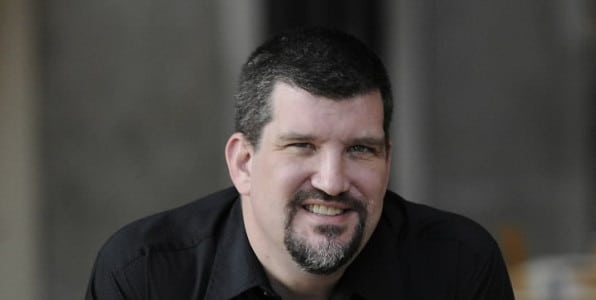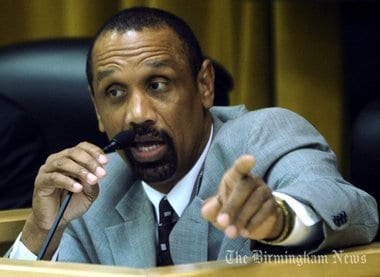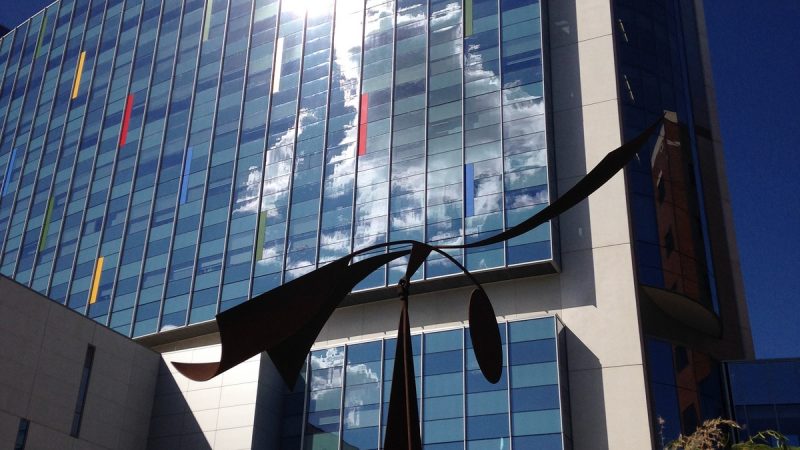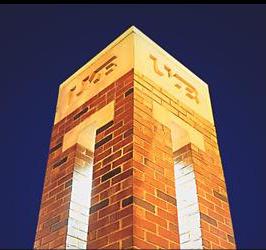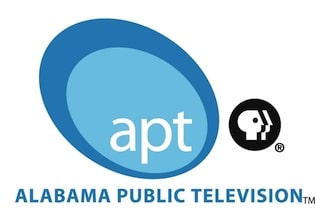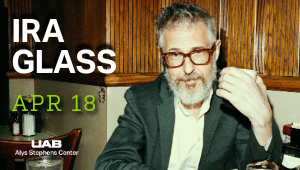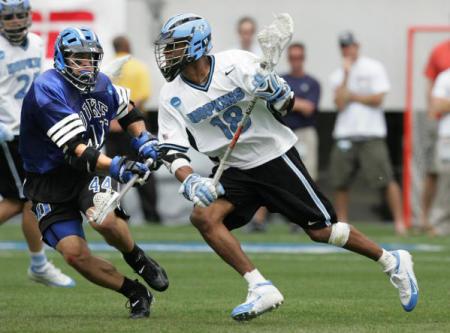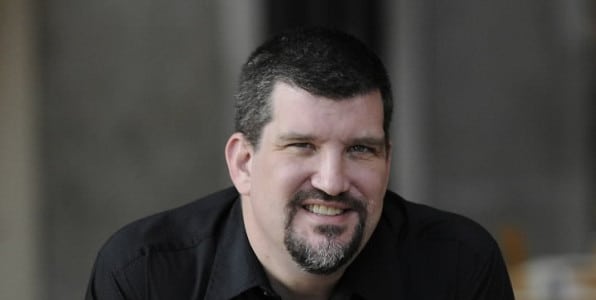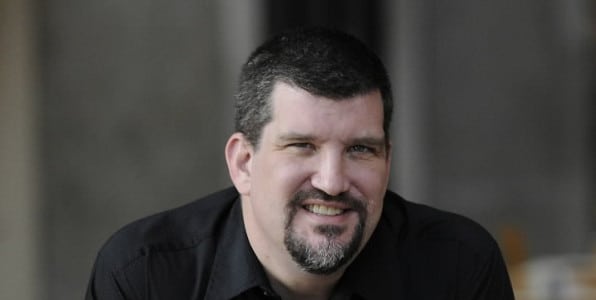News
August 20 Morning Newscast
Alabama Public TV gets a new executive director; Tampa and Charlotte prepare for national conventions amid changing political landscape; and hunters take aim at alligators.
August 17 Morning Newscast
Carol Garrison steps down as president of UAB; the U.S. Commission on Civil Rights holds a public hearing about crackdowns on illegal immigration in Alabama and other states.
Birmingham School Board Gets Down To Business
The Birmingham school board finally gets down to business; and emotions run high as county commissioners look to close inpatient care at Cooper Green Mercy Hospital.
Stimulants on Campus
Thousands of college students are heading back to school across Alabama. But for some, keeping up with the workload means more than just drinking a few cups of coffee. As UAB student and WBHM intern Aditi Jani discovered first hand, some students are abusing prescription stimulants to cope with the pressure to achieve.
BREAKING: Birmingham BOE Conducts Civil, Productive Meeting
The Birmingham School Board conducted a civil and efficient meeting Tuesday night, perhaps cowed by a judge's ruling that the state does have authority over the district and that Superintendent Craig Witherspoon will keep his job during the takeover. Our Southern Education Desk reporter Dan Carsen has this surprising web-exclusive.
August 15 Morning Newscast
The Birmingham School Board conducts a civil and efficient meeting; former governor Don Siegelman says a presidential pardon is his last hope for freedom; and criminal wrong doing at the Birmingham Water Works.
August 14 Morning Newscast
Jefferson County Circuit Judge Houston Brown rules that the Birmingham School Board must stop interfering in a state takeover of the school system; the Alabama Democratic Party will hold a hearing Friday on disqualifying Harry Lyon as the party's nominee for chief justice; and The Business Council of Alabama supports a proposed constitutional amendment to permit the removal of nearly $146 million a year for three years from a state trust fund for use in balancing the state General Fund budget.
The New Children’s of Alabama
Doctors, staff and patients are getting used to their new digs, now that the Benjamin Russell Hospital for Children is open for business. CEO Mike Warren says thanks to careful planning, the move to the building earlier this month went very well. So with Childen's of Alabama in its new home, WBHM Intern Aditi Jani spoke with Warren about how the facility positions the hospital for the future.
August 13 Morning Newscast
The Jefferson County Commission votes tomorrow to close e inpatient care at Cooper Green Mercy Hospital by Oct. 1; Alabama lags in incentives for solar power; and a monument being built to honor Confederate Gen. Nathan Bedford Forrest is stirring up controversy in Selma.
August 10 Morning Newscast
Alabama ranks 14th on Toxic 20 List; 75% of Alabama schools make adequate yearly progress; and UA student discovers extinct snail in Cahaba River.
Meet WBHM’s Interns
Here's your chance to put faces to the voices you're hearing during our Summer Fund Drive. Meet WBHM's Summer 2012 Interns.
August 9 Morning Newscast
Judge allows lawsuit in Alabama Public Television Controversy; State Attorney General defends process of redistricting; and job fair draws thousands of people seeking work in Birmingham.
WBHM Names Scott Hanley as New GM
Scott E. Hanley will become general manager of Public Radio WBHM 90.3 FM , licensed to the University of Alabama at Birmingham , effective Monday, Aug. 27.
August 8 Morning Newscast
Jefferson County leaders set date to vote on closing Cooper Green Hospital's in-patient services; Birmingham's mayor looks to attract pro sports; and a judge says "time is of the essence" in Alabama Public Television lawsuit.
Noted Author On Alabama Public Television Controversy
WBHM has obtained a letter sent to Governor Robert Bentley by a noted author and public television producer who calls on the governor to take action on the Alabama Public Television controversy.
August 7 Morning Newscast
Mark A. Elgart President and Chief Executive Officer of AdvanceEd says he has serious concerns with Birmingham Board of Education and testimony continues in a lawsuit between Allan Pizzato and the Alabama Public Television Commission.
Testimony from the Alabama Public Television Lawsuit
Testimony in a Jefferson County courtroom is revealing more details about the unexpected firing of former Alabama Public Television executive director Allan Pizzato. Pizzato filed suit in Jefferson County Circuit Court against the Alabama Education Television Commission and its seven members, claiming they violated the state’s open meetings law when they fired him at a June 12th meeting.
August 6 Morning Newscast
A former Jefferson County commissioner is transferred from federal prison and a new study says the Alabama county circuit clerks retirement plan is underfunded.
Judge Extends Orders Against Birmingham School Board
One round of testimony is over, but the long road to legal closure in the battle over Birmingham Schools is not. After two sometimes arcane, sometimes fiery days of testimony, Jefferson County Circuit Judge Houston Brown on Thursday extended two temporary injunctions against the Birmingham Board of Education by 10 days or until further notice. Our Southern Education Desk reporter Dan Carsen has the latest in this web-exclusive story.
August 3 Morning Newscast
Judge extends injunction in Birmingham Schools case; State seeks waiver from No Child Left Behind; and LSU opens 2012 ranked #1.
Lacrosse in a Football State
If there's one sport that's synonymous with Alabama, it's football. But in recent years, a much older team sport has grown significantly in Birmingham and around the state.
August 2 Morning Newscast
Attorney alleges Birmingham school board president doesn't live in Birmingham; Former Governor Don Siegelman is likely headed back to prison; and UA gets approval for $9 million athletic facilty.
Court Considers Firing of School Superintendent
Attorney alleges Birmingham school board president doesn't live in Birmingham; Former Governor Don Siegelman is likely headed back to prison; and UA gets approval for $9 million athletic facility, but what does UAB get?
August 1 Morning Newscast
Alabama Educational Television Commission hired Birmingham law firm; Students at UAH call for closure of campus Chick-fil-A; and Eastern Equine Encephalitis confirmed in Alabama.
Alabama Public Television COO Resigns
Alabama Public Television COO resigns citing controversy at network and "stressful work environment."
July 31 Morning Newscast
New law increase beer bottle sizes; dozens of Alabama roads and bridges to get upgrades; and Alabama State Bar has a new president.
July 30 Morning Newscast
Alabama bans texting while driving; restaurants and bars defying indoor smoking band; and remembering longtime TV and movie character actor who grew up in Birmingham.
July 27 Morning Newscast
Governor Bentley finally comments on controversy at Alabama Public Television; Alabama asks federal court to approve redistricting plan; and when does a campaign contribution constitutes a bribe?
Through the Sparks Returns to Birmingham
Through the Sparks may be a Birmingham-based band, but it's been a while since they've performed in Birmingham. That changes tonight. The band plays Bottletree Cafe tonight.
The Fight for Control of Alabama Public Television
This morning, a group of religious leaders will deliver thousands of petition signatures to Alabama Public Television headquarters in Birmingham demanding the network keep evangelical minister and conservative activist David Barton's religious DVD series off the airwaves.
July 26, 2012 Morning Edition News
The state seizes hundreds of electronic bingo machines, former HealthSouth CEO Richard Scrushy is released, and a civil rights pioneer dies.
Cuts More Clear at Birmingham City Schools
Details are emerging in the massive budget cuts at Birmingham City Schools. On Tuesday, the school board deadlocked over approving the state's $12 million cost cutting plan, but the state stepping in and imposed the plan anyway, firing 61 employees and cutting the salaries of many high-level administrators.



